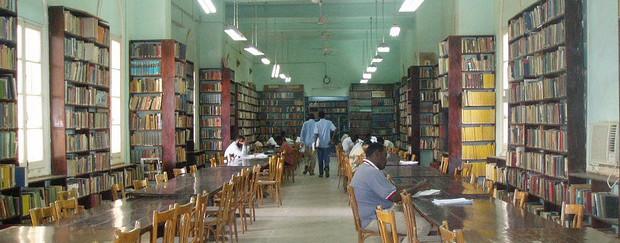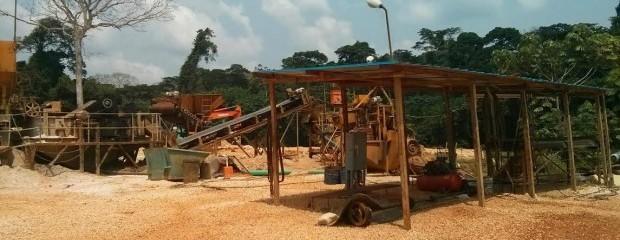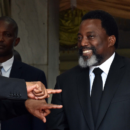COVID-19: The state cannot save us

South Africa’s biomedical response has been exemplary, but it has failed to mobilise social movements essential for tackling public health crises.

President Cyril Ramaphosa receiving a consignment of Personal Protective Equipment (PPE) to deal with the COVID-19 pandemic. Credit: GCIS.
Read all our COVID-19 coverage
More than 60 days after it began, South Africa is easing its way out of one of the most sweeping lockdowns of the global COVID-19 pandemic. Certain measures are being lifted under “Level 3” of the government’s risk-adjusted response, leaving the country somewhere between normality and earlier radical restrictions.
In this limbo state, debate around South Africa’s pandemic response has become fiercer. Why is the sale of alcohol now permitted, but not tobacco? Why do religious assemblies get a free pass, but not hairdressers and other social gatherings? On 2 June, the High Court in Gauteng declared almost all the lockdown regulations invalid in what seems to be the first of a slew of legal challenges. The state is appealing the judgement.
None of this is surprising. Social life is messy. Any limited opening up will inevitably lead to some contradictions. The discussions around these are, of course, important. But we must not lose sight of the bigger picture by focusing just on what the state permits and forbids.
Any society confronting the politics of “making live and letting die” elicited by an epidemic needs to respond at least at two levels. One is at the level of state, which is required to act on behalf of society as a whole, ensuring the availability of resources within large systems and networks, and shaping the broader risk environment. The other is at the level of everyday life, in which individuals and communities must mobilise an ethics and technology of care for self and others, changing their behaviours locally to reduce the risk of transmission.
These two levels need to complement each other. Public health is a social good which needs to be produced together by citizens and the state. This is one of the lessons of tackling HIV/AIDS and Ebola. In both, civil society organisations and partnerships between local communities and governments were critical. Facing COVID-19, we need a similar social contract between the state and citizens, collaborating in solidarity to keep the vulnerable safe and take care of the sick.
Unfortunately, the focus in South Africa has been one-sided. There has been an exemplary biomedical response at the state level: the government acted swiftly to “flatten the curve”; it rolled out a sweeping programme of community screening, testing and contact tracing; and it put in place clinical facilities for palliative care. But this has not been accompanied by a corresponding focus on a “democratic politics of life” that enlists citizens as partners and recognises them as bearers of rights and social actors. There has been little attempt to mobilise the capacities for solidarity and self-organisation that are essential to combat pandemics, especially within poor populations and in informal settlements.
In fact, it is absurd and disturbing that many social distancing behaviours required by the government cannot be achieved for many urban residents. This is far from what is needed, which is solutions crafted by local organisations working with local government and health agencies. It is only if measures are co-produced and locally owned that they will they be appropriate and effective. Among other things, this involves special measures for those who need additional support, such as those with low incomes and limited mobility as well as migrants and asylum seekers.
A disciplinary state
So far in South Africa’s COVID-19 response, the default frame for thinking about state-society relations has been disciplinary and coercive. The emphasis has been on the top-down controls via sometimes bizarre regulations. Some of these measures, particularly the prohibitions on alcohol and tobacco, do not appear to be informed by science but rather the desire to subject poor black South Africans to moral tutelage.
While the loudest voices of protest have come from middle classes, the harshest impacts have been felt by poor black South Africans. During the first two months of the pandemic, almost a quarter of a million people were arrested for contravening lockdown regulations – more, according to Ferial Haffajee, than any other country on the planet. Eleven people – all male, black and poor – have been killed by security forces.
Perhaps most perplexingly, the government has failed to consider the disastrous effects of lockdown on the 40% of the population who are not part of the middle and core working class. Economic relief packages have been biased towards the formal economy. Social protection measures have been inadequate, poorly implemented and hard to access. And measures to support agriculture have been designed in a way that excludes the vast majority of survivalist smallholders and subsistence farmers.
Yet 30% of South Africa’s labour force works in the informal economy. They include domestic and care workers, waste recycling and transport workers, hairdressers and barbers, street and market traders. Unable to work from home, they are without incomes. The consequences for urban informal enterprises have been similarly severe. Local “spaza” shops can seek a licence to remain open, but most lack the means to apply. The fact that informal entrepreneurs have been asked to seek formal support is both a cruel paradox and a sign that the government did not engage with informal traders to co-design their strategy.
As such, their approach to the informal economy has been clumsy, bureaucratic and, at times, tainted by chauvinism and xenophobia. Crucial food security interventions such as the South African National School Nutrition Programme – the largest of its kind of Africa – have been suspended, while other emergency food distribution measures have been beset by corruption, meddling and bureaucratic bungling.
Some of these difficulties are due to the enormous practical challenges. But there are also indications of a moralising bias against “government handouts”. One such sign was when the interim CEO of the Solidarity Fund, created to enable the private sector and civil society to support the COVID-19 response, announced the Fund would stop providing emergency food rations in favour of measures to “activate communities to do things for themselves”.
As a result of these shortcomings, South Africa’s “world class” biomedical response risks running aground on its failure to recognise the social impacts of its policies. Firstly, its response is already leading to increased poverty and malnutrition, a dire eventuality with serious health implications of its own. Secondly, its actions are endangering the legitimacy of the entire pandemic response, leading to polarisation rather than solidarity and compliance. And thirdly, these developments are likely to leave a dangerous long-term political and economic legacy. They risk undermining the social contract at the heart of South Africa’s fragile democracy and deepening inequalities.
Solidarity and care
What has happened to the more intimate and arguably more important level of pandemic biopolitics: namely, the mobilisation of solidarity and of an everyday ethics of care for self and others? Where is the focus on the “conduct of conduct” among citizens and often simple ways in which we can keep each other safe? How much attention is being given not only to the legal but moral obligations of employers, whose decisions will have major implications for the wellbeing of the poor and vulnerable people they employ?
Those conversations appear to be neglected. Even the death of Collins Khosa and ten of his compatriots, happening at the same historical moment as the worldwide #GeorgeFloyd protests, has elicited little public comment.
Another way is possible. Alongside the traditions of Stalinist and neoliberal governance that infuse South Africa’s mainstream political and economic culture, there are also resilient alternative legacies of community activism, solidarity and local self-organisation. Along with the bungling and authoritarian mismanagement of Ministers Nkosazana Dlamini-Zuma and Ebrahim Patel, we also have an efflorescence of civil society action by the likes of the C19 People’s Coalition and local Community Action Networks that have sprung up to deal with local hunger, distress and illness.
Most importantly, we also have the example, in recent and living memory, of the Treatment Action Campaign. That social movement for public health around the HIV/AIDS pandemic successfully linked poor people’s demands for better medical care with demands to address the social and economic causes of inequality. It has been done before. We can do it again.






